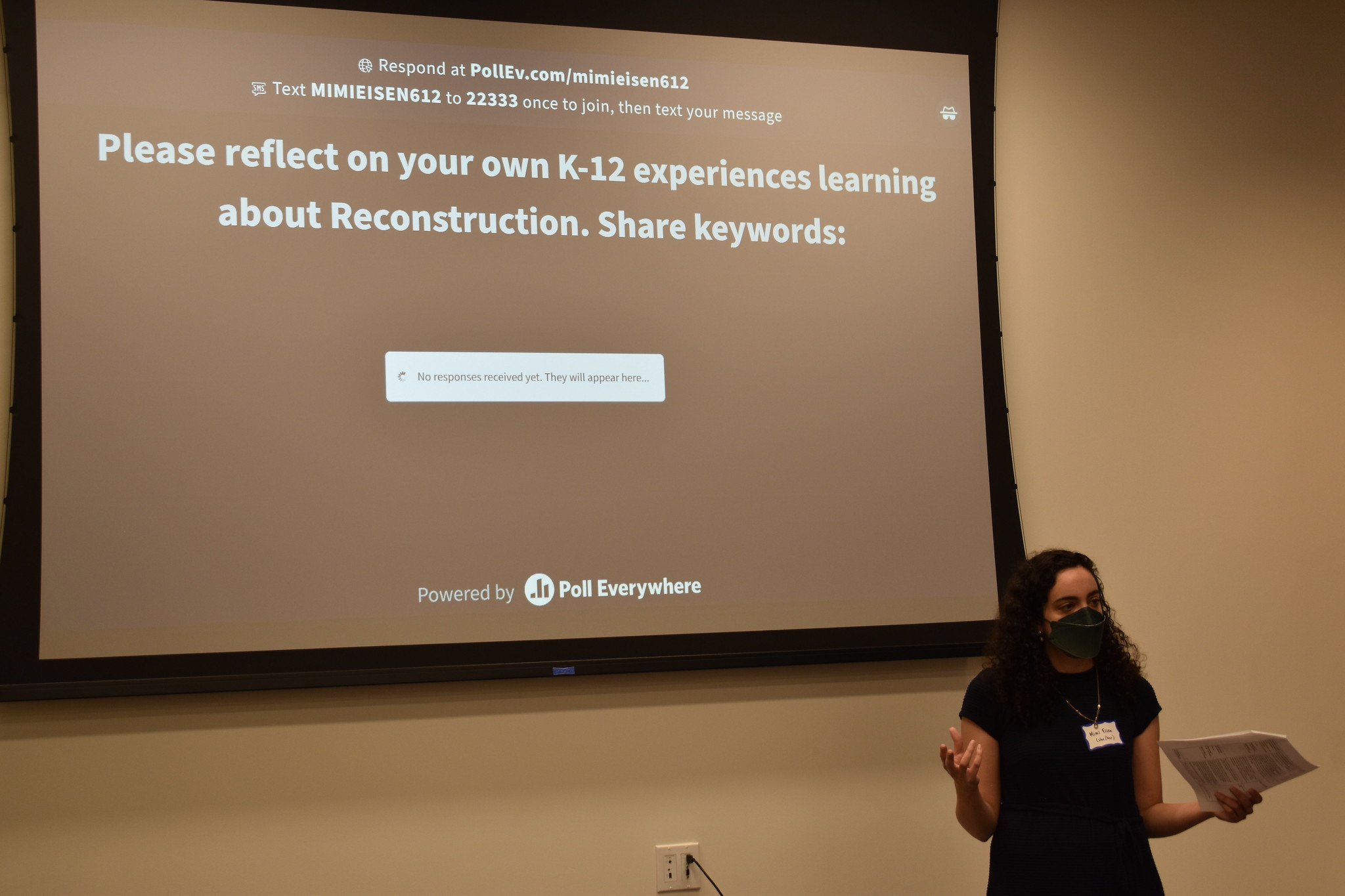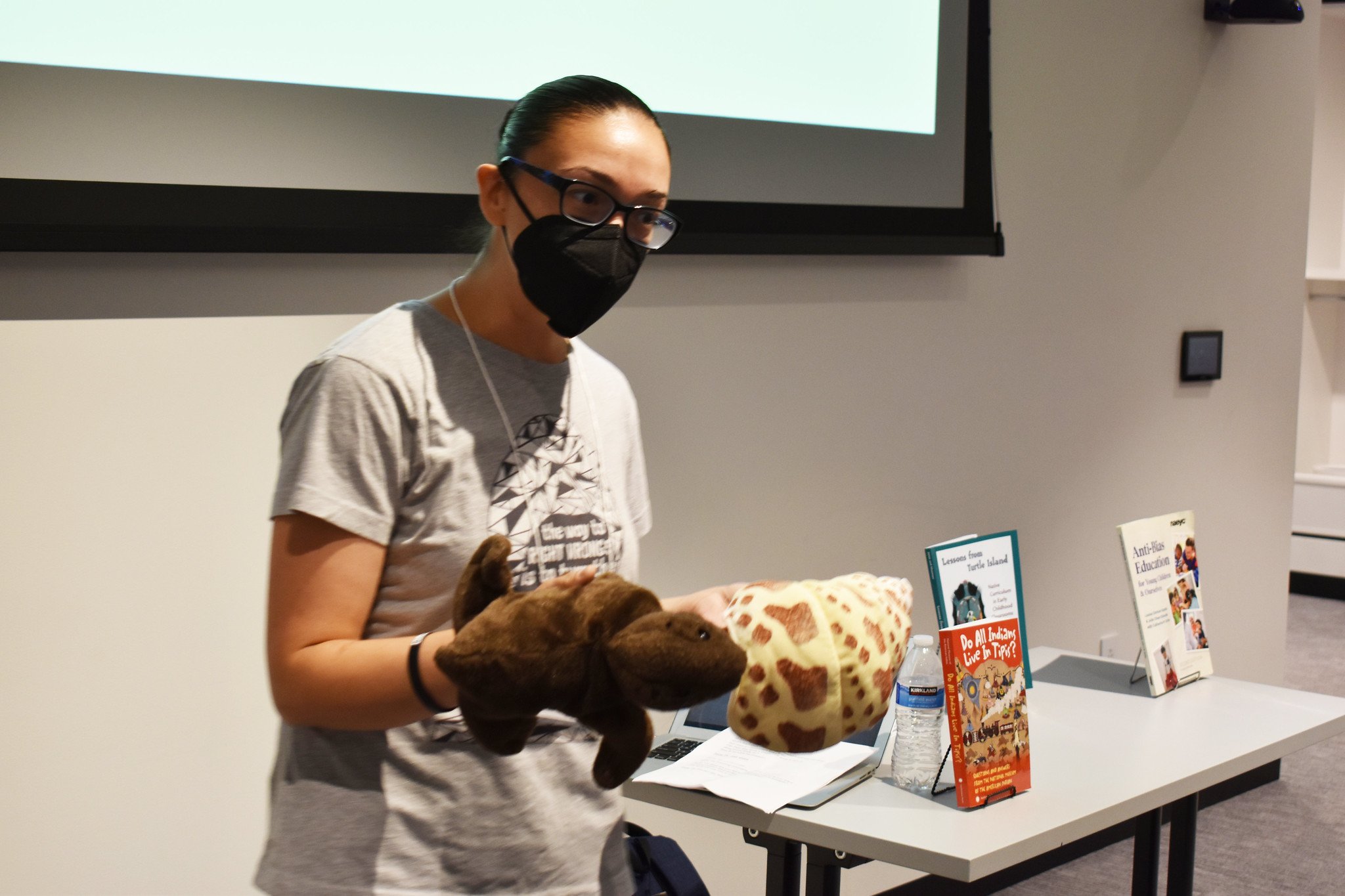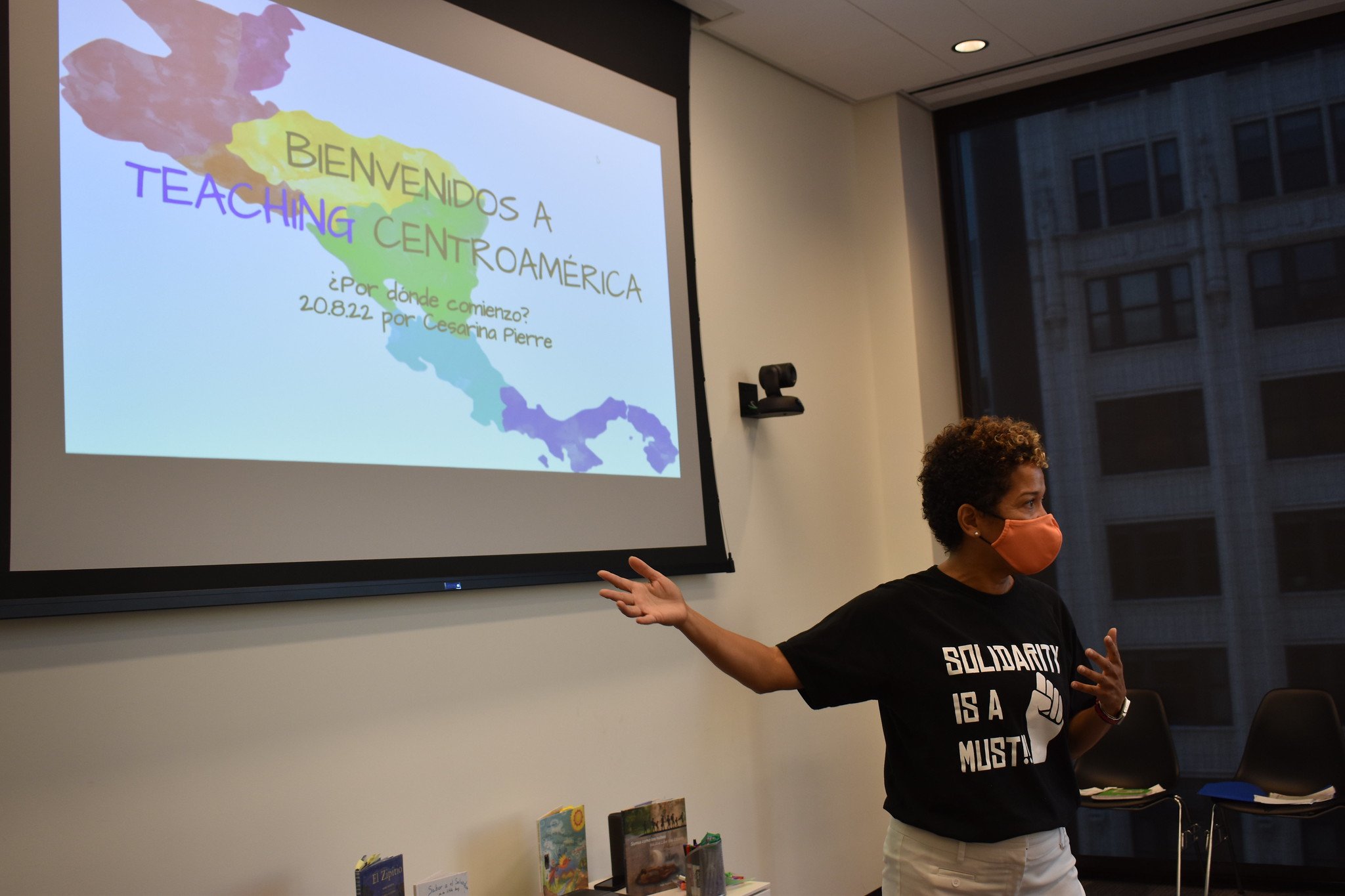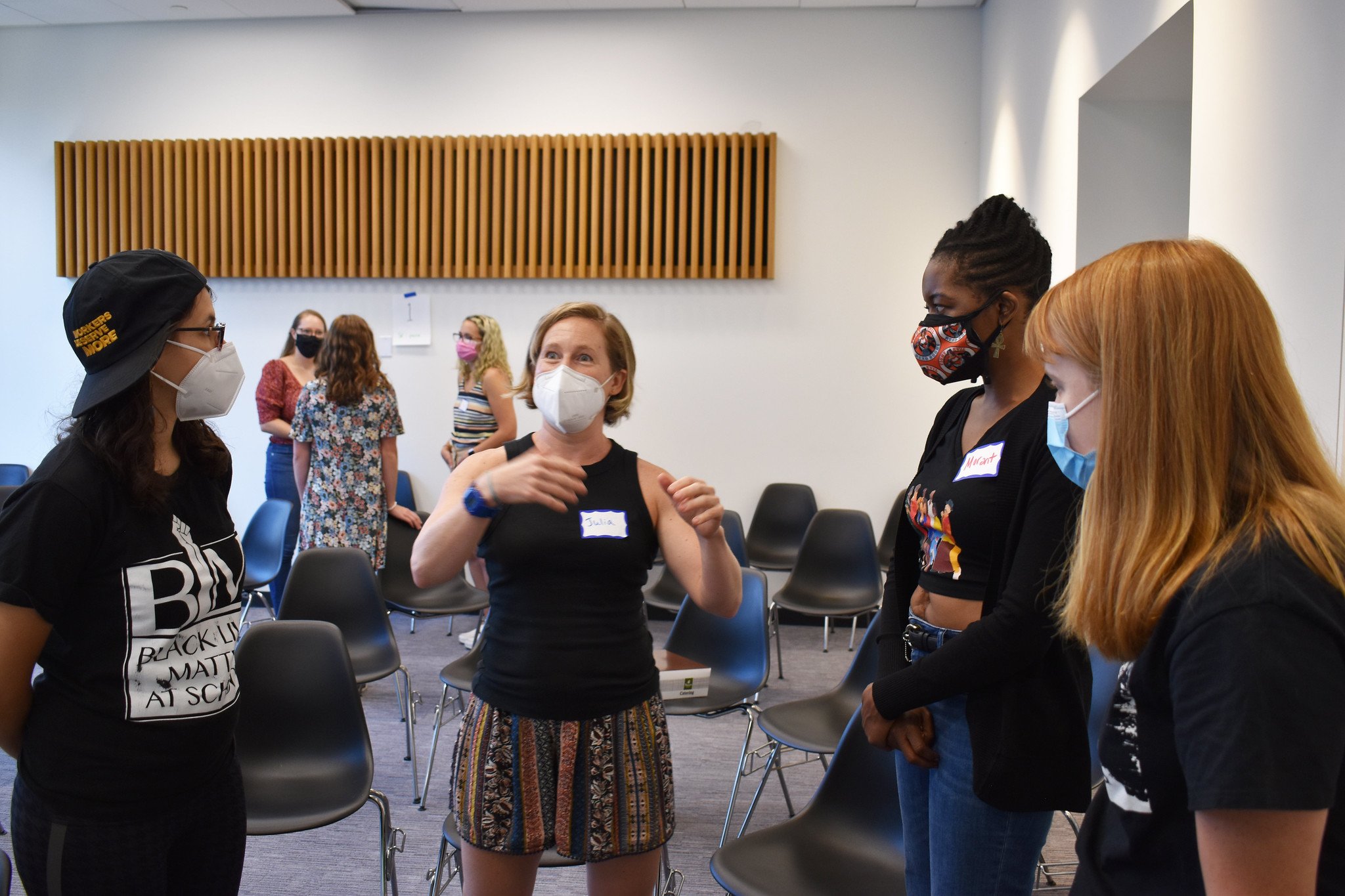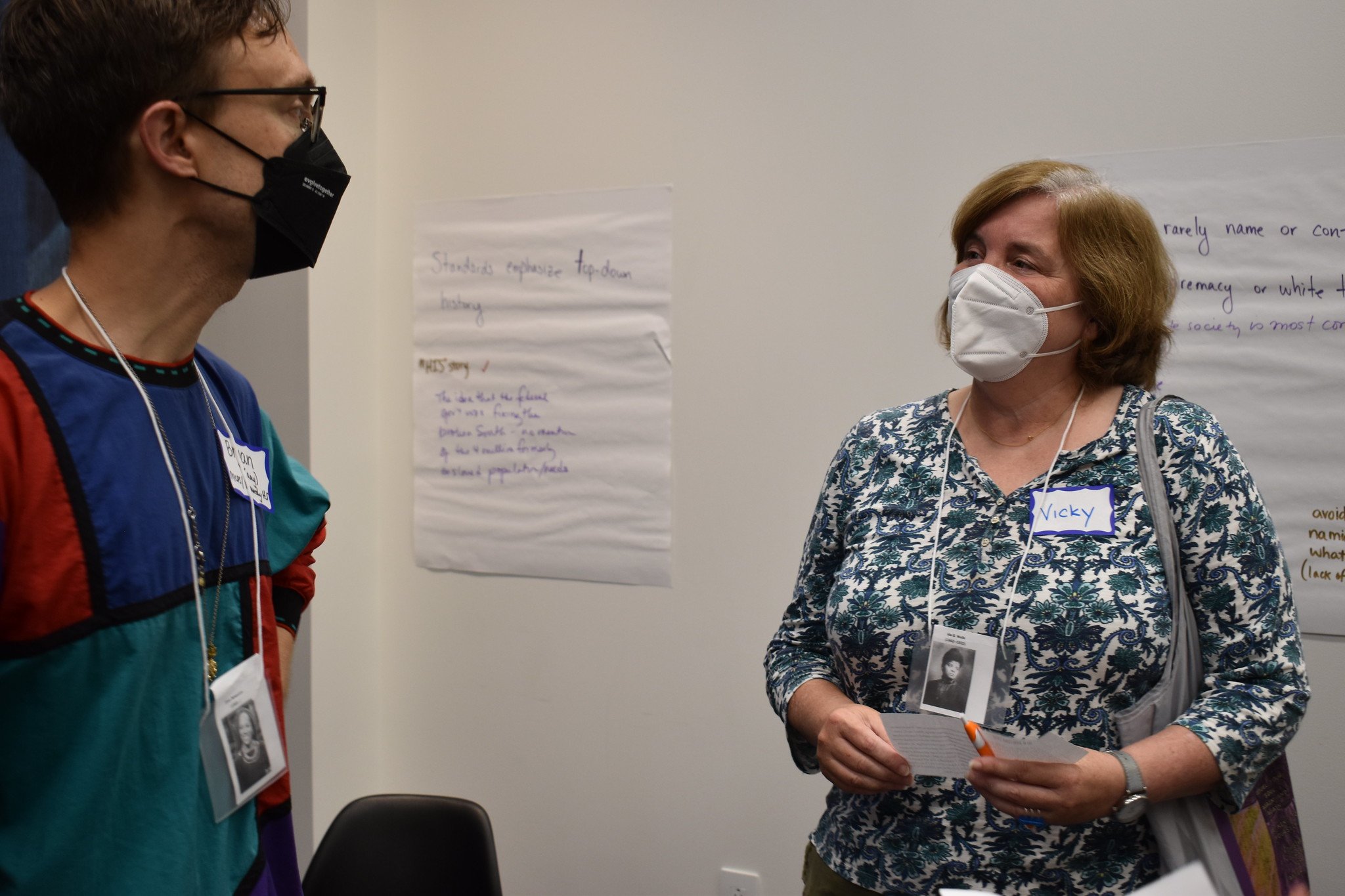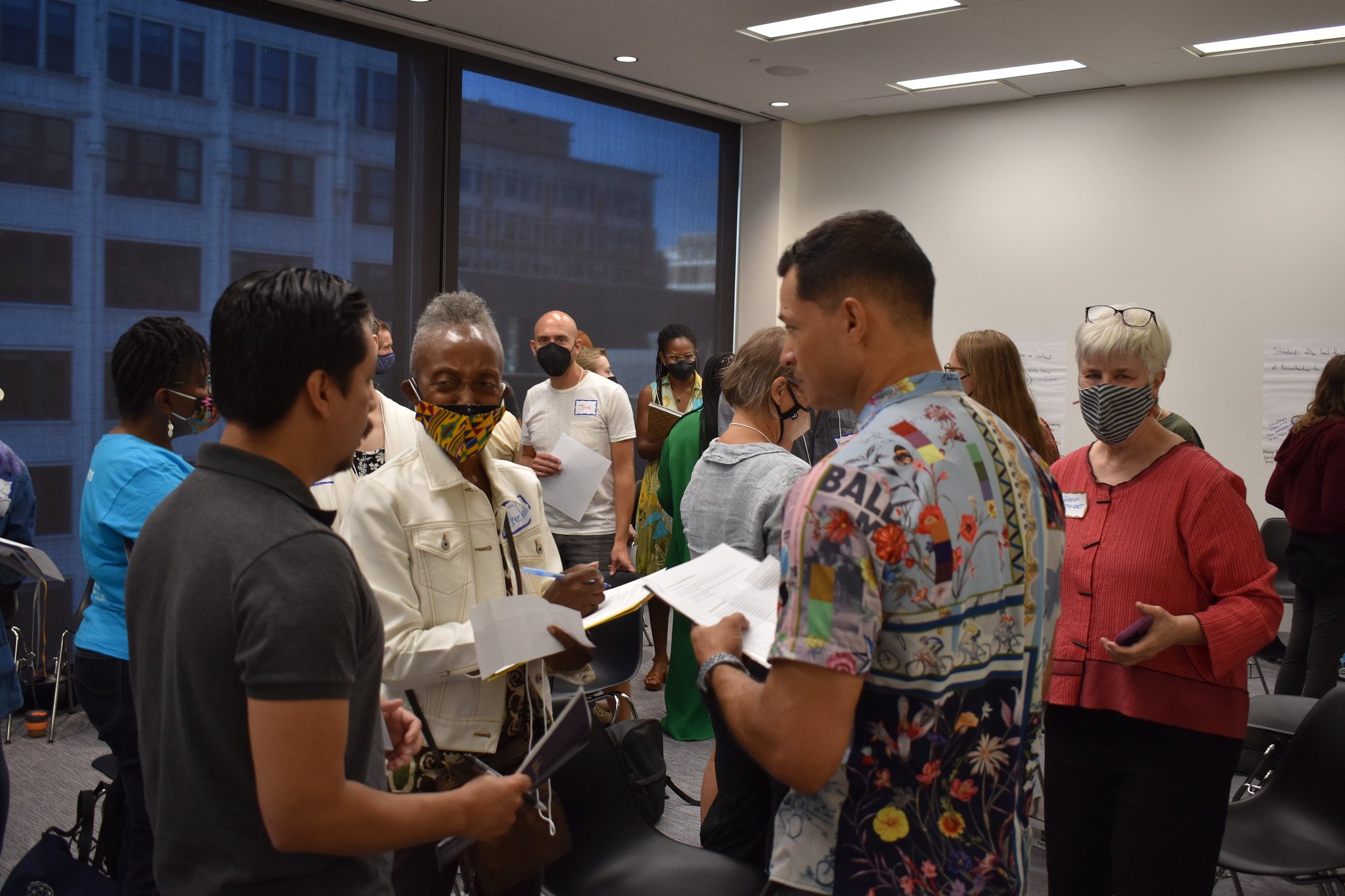Social Justice Curriculum Fair
I had an amazing morning participating in the @dcaesj Social Justice Curriculum Fair with @teachingchange and @ZinnEdProject. I was informed and inspired by the engaging workshops and my conversations with fellow educators. It was the perfect way to kick off a new school year! pic.twitter.com/sx8f32mkLy
— Michael Palermo (@PalermoTeacher) August 21, 2022
THANK YOU SO MUCH FAMILY!!! This was my first year attending the fair and I did not want to leave! From the moment I arrived to when I left the venue, I felt supported and united with other educators who are serving with compassion in the D.C. district and other school districts. Thank you so much for the food, books, posters, and other materials gifted to participants. May the Lord bless everyone who planned and worked together to make this fair a success! I LOVE EACH OF YOU AND PRAY YOUR SCHOOL YEAR IS PROSPEROUS AND JOYFUL!! :)
This has been an AMAZING experience!!! I'm so excited to become more involved with DCAESJ!!!!!!
What an empowering space to learn new strategies to incorporate justice and inclusion as we start the school year. Thank you
I will learn more with the information I was given today. It made me HUNGRY!!
On Saturday, August 20, D.C. Area Educators for Social Justice (DCAESJ) hosted its inaugural Social Justice Curriculum Fair at the Martin Luther King Jr. Memorial Library in Washington, D.C. Educators from all over the D.C. area, and even one educator from Houston, Texas, gathered to learn more about local organizations supporting social justice education, participate in powerful workshops across subjects and grade levels, and learn more about DCAESJ in preparation for the 2022–2023 school year.
Vanessa Williams, program manager for DCAESJ, and Kimberly Ellis, the Education Anew Fellow with Communities for Just Schools Fund, welcomed attendees.
Free Books, Food, and In Service Credit
In addition to a robust selection of workshops and exhibits, participants received:
a choice of a children's or young adult book thanks to donations by publishers
breakfast upon arrival and lunch donated by Petit Monde Cafe
three-hour professional development certificate
chance to win a raffle prize from Compass Coffee, Call Your Mother, Pizzeria Paradiso, the Clayground, Alexandria Clay Coop, and Busboys and Poets
Multiple participants told us, “I felt so well-taken care of.”
Spotted in the @dcaesj book giveaway: my former @AnacostiaHigh student Kahliya’s book. She co-authored Deena Misses her Mom as part of her experience with @ReachInc. Texted her immediately to let her know her work is out here in front of other students!! pic.twitter.com/HcD15HxYil
— Caylah Green (@CaylahGee) August 20, 2022
Workshops
Reconstruction: Most Important and Least Taught Era in U.S. History by Mimi Eisen
Reconstruction is among the most instructive and neglected topics in K-12 history education. In this workshop, participants used the Zinn Education Project's 2022 report on teaching Reconstruction to learn and share ways to advocate for more attention to Reconstruction education and improve students’ understanding of complex, crucial histories.
Resources:
Columbus Who? A Dialogue on Discovery with Young Children by Makai Kellogg
DCAESJ anti-bias early childhood education working group leader Makai Kellogg shared about her experience uplifting Indigenous Peoples’ Day and teaching about it with early childhood students. Kellogg created an age-appropriate experience for her students to engage critically with teaching about Indigenous people by using puppets. One participant shared, “The use of puppets as a vehicle to discuss equity was brilliant!”
Resources:
Queer Pedagogy by Mollie Safran
DCAESJ secondary working group leader Mollie Safran introduced queer pedagogy and how it differs from and intersects with “LGBTQIA+ inclusion” by including specific examples across several curricular areas. Safran shared her experiences using queer pedagogy in the classrooms, then workshop participants worked in small groups to brainstorm ways to “queer” curriculum in their own classrooms.
Resources:
Education as an Exercise in Restorative Justice by the Black Broad Branch Project
Representatives of the Black Broad Branch Project provided teachers with an overview on education as an exercise in reparative/restorative justice. Participants discussed and generated a list of practical ways that community and familial histories can be used to inform the historical narratives being taught in the classroom.
Resources:
Teaching Central America to Upper Elementary: ¿Por dónde comienzo? by Cesarina S. Pierre
In this workshop — presented mainly in English with a sprinkle of Spanish — Cesarina Pierre shared her experience teaching Teach Central America over the years to fourth and fifth graders. Attendees participated in activities Pierre conducted with her students, as well as collaborated with other participants in order to brainstorm teaching Central America goals, lesson ideas, and activities to consider implementing in the upcoming school year. One participant shared,
Pierre did an excellent job integrating both principles and actual classroom experience with students. It was especially helpful to hear about her progress of her journey from year one to current and how she utilized the experience to improve each year.
The Divergent Educator: Disabled Pedagogy as Self-Advocacy by Christian Folk
This workshop provided a detailed look at educating with mental and physical disabilities. It hinged on the use of disability pedagogy as a tool for self-advocacy and centering the disabled experience in instruction and student learning, creating a transformative and equitable space for stakeholders. Disability pedagogy involves breaking down student-teacher hierarchies, approaching curriculum from a disability perspective, and treating disability as a vital component of knowledge-making. Participants explored resources on disability during this workshop, as well.
Resources:
Getting to the Root: Teaching about Wellness, Mindfulness, and Radical Self-Care by Cierra Kaler-Jones
This workshop introduced attendees to a lesson idea that encourages middle and high school students to explore the importance of care and wellness to sustain themselves, and in turn, social movements. By examining examples of organizers and activists who employed yoga and mindfulness as tools of revolution, such as Mrs. Rosa Parks and Ericka Huggins, attendees engaged in a critical conversation about how wellness and mindfulness practices disrupt capitalism and white supremacy culture. Attendees were also guided through a breathing exercise and gentle stretch to embody the power of individual and collective care.
Resources:
Mini Workshops
Insistence on Resistance: Resistance 101 Mixer Lesson on Social Justice Activists and Strategies by Deborah Menkart
Participants were introduced to Teaching for Change's lesson Resistance 101. They engaged in the mixer lesson which features people from throughout U.S. history who have fought for social justice using a range of strategies. After experiencing the lesson, participants shared how they might use or adapt the lesson for their classroom.
Resources:
Use Your Voice: D.C. Student Advocacy by Brittany Richardson
In this workshop, EmpowerEd parent and family voice organizer Brittany Richardson guided participants through her project-based, standards-aligned project that requires students to research a social justice topic and create a public service announcement in the form of a multimedia presentation. Participants modeled/shared their PSAs and learned more about ways to share their work beyond the classroom.
Tabling
Wonderful morning sharing resources with many dedicated educators attending the curriculum fair @dcaesj @teachingchange pic.twitter.com/9FacMFEwY0
— AnOpenBookFoundation (@AOBFound) August 20, 2022
We are at the DC Social Justice Curriculum Fair put on by @dcaesj ready to talk about how rank and file caucuses can further the fight for social justice. pic.twitter.com/trVxvPa35M
— DC-CORE (@DC_CORE) August 20, 2022
So excited to be with @dcaesj today for the Social Justice Curriculum Fair! What an astounding turnout, with overflow crowds, to learn about ways to bring Social Justice into the classroom. Excited to talk to teachers today! pic.twitter.com/0WHEtVAblx
— EmpowerEd (@EmpowerEdDC) August 20, 2022
Tabling Organizations
An Open Book Foundation connects Washington DC-area students to authors, illustrators, and their books to nurture a lifelong love of reading. We support educational justice by building equitable access to interactive literacy enrichment and high-quality books.
Center for Inspired Teaching is an independent nonprofit organization that invests in and supports teachers. Inspired Teaching provides transformative, improvisation-based professional learning for teachers that is 100% engaging – intellectually, emotionally, and physically.
Certain Days: Freedom for Political Prisoners Calendar is a joint fundraising and educational project between outside organizers across North America and political prisoner Xinachtli (s/n Alvaro Luna Hernandez) in Texas. We were happy to welcome founding members Herman Bell and Robert Seth Hayes (Rest in Power) home from prison in 2018, and founding member David Gilbert home from prison in 2021.
Critical Exposure trains DC youth to harness the power of photography and their own voices to fight for educational equity and social justice. We’re creating a new generation of leaders who have: the tools to express themselves, the creativity to imagine new solutions to old problems, the belief that youth have the right and ability to fight for those solutions, and the skills to hold communities and public officials accountable.
D.C. Area Educators for Social Justice working groups is an intentional learning community for K-12 social justice educators in the D.C. metro area. The working groups provide experienced social justice educators an opportunity to deepen practice, gain moral support from peers, and engage in writing for publication or workshop development to share lessons or teaching stories.
D.C. Caucus of Rank and File Educators is a diverse group of anti-racist educators from all 8 wards. We are united by the belief that the Washington Teachers Union is in a unique position to create a public school system that better serves our educators, students, and families. Together, we can effectively achieve fully funded public education by building a strong, member-driven union that organizes and empowers educators to fight for changes in and outside of the classroom.
D.C. History Center deepens understanding of our city's past to connect, empower, and inspire. As the only community-based nonprofit focused on the District’s history, our vision is to reach into all eight wards to preserve and elevate the stories of Washington's diverse people, neighborhoods, and institutions.
EmpowerEd’s mission is to bring about a more just and equitable education system for all DC students by centering the voices and ideas of diverse educators and creating a culture of shared leadership that retains excellent educators.
Oso Blanco Greeting Cards Children's Art Project (CAP) was first conceived by Indigenous political prisoner Oso Blanco several years ago. Imprisoned by the US government for expropriating from banks to fund the Zapatista Army of National Liberation (EZLN), Oso Blanco has been using art to continue his mission. These first four designs were all painted by Oso Blanco after he had been captured in 1999. Proceeds from the sale of these greeting cards will benefit children in the autonomous Zapatista zone of Chiapas, Mexico, and on reservations here on Turtle Island.
Prologue DC’s team of Washington-based historians knows how to find and tell the stories you’re looking for. Whether it’s a neighborhood, school, church, business or organization, PROLOGUE DC can help you mark an anniversary or other milestone, raise visibility, and demonstrate your unique place in Washington history.
Social Justice Books, a project of Teaching for Change, offers carefully selected lists of books for children and educators, book reviews, and articles on social justice, multicultural children’s literature.
Teaching for Change provides teachers and parents with the tools to create schools where students learn to read, write, and change the world. By drawing direct connections to real world issues, Teaching for Change encourages teachers and students to question and re-think the world inside and outside their classrooms; build a more equitable, multicultural society; and become active global citizens. Our programs include the DC Area Educators for Social Justice, Teach Central America, Social Justice Books, Civil Rights Teaching, and the Zinn Education Project (with Rethinking Schools).
Thanks to Our Donors
The Social Justice Curriculum Fair was made possible by the generous support of our D.C. Area Educators for Social Justice donors including the The Morris and Gwendolyn Cafritz Foundation, Communities for Just Schools Fund, the Taste of Salt Fund, an anonymous grant, as well as donations from individuals. Donate now to support DCAESJ activities all year.






